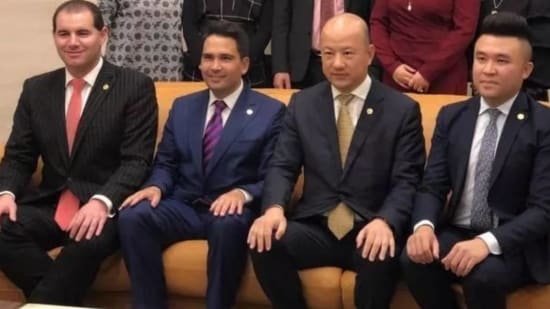Serious Fraud Office didn’t understand Chinese culture
Politics
A court hears investigators and Crown lawyers ignored Chinese cultural factors when pursuing members of that community over alleged deceit involving political donations
Serious Fraud Office investigators failed to view dealings between defendants in the political donations case through a Chinese cultural prism, leading to assumptions about their conduct and behaviour that skewed the prosecution, a defence lawyer has told the High Court.
Paul Dacre, QC, acting for a defendant Colin Zheng, criticised Crown lawyers for putting aside Chinese cultural factors, and for urging Justice Ian Gault to be cautious about letting cultural evidence play a part in his deliberations.
Seven people face charges of obtaining by deception over donations to the Labour Party in 2017 and National in 2017 and 2018 that the SFO alleges were from one donor but broken up in other ‘sham donors’ names to avoid public declaration of the true donor’s identity. All seven have pleaded not guilty and the seven-week trial is approaching its final day with closing statements from defence lawyers.
Dacre said the Supreme Court in 2021 recognised the concept of guanxi, or interpersonal relationships, should be considered in court cases involving Chinese defendants. It provided guidance for judges and said “the social and cultural framework within which one of more of the protagonists operate” may be of great significance in some cases.
“Cases in which one or more of the parties have a cultural background which differs from the judge are common in New Zealand and likely to become more common in the future.
“Judges should approach such cases with caution.”
Dacre said the Supreme Court quoted Australian judge Emilios Kyrou advising judges to develop “a mental red-flag cultural alert system which gives them a sense of when a cultural dimension may be present so that they may actively consider what, if anything, is to be done about it”.
Dacre said in the political donations case, the cultural considerations were important.
“It’s the key to understanding the relationship and that what might be formally required and expected at arm’s length and in businesses, might not be the same dealing with family, associates, people who know each other and trust each other.
“Should the Serious Fraud Office have consulted or looked at the evidence through a different prism or telescope and looked from a cultural point of view, it might much more readily have understood” relations between his client and the alleged main donor Yikun Zhang, his sister Shaona Zhang, money transfers and bank accounts from China, and contracts for a house building. “And relations between these people, witnesses, from the same organisation and same cultural background, language and social background.”
Dacre said Colin Zheng had a close personal and business relationship with Zhang, well explained to the Serious Fraud Office in an interview. He’d said “this is my relationship with Yikun Zhang and I’m willing to have trust both ways, but it’s got to be legal.”
The Crown alleges Colin Zheng arranged for three donations by Zhang – of $60,000 for paintings from a Labour fundraiser, and $100,000 on two occasions for National – to be split up and for ‘sham donors’ from within his family, friends and fellow members of a Chinese cultural association to have their names used for parties’ records.
Dacre said Colin Zheng was a New Zealand citizen, had no criminal record here or in China, had a publicly available record of substantial philanthropy and had himself made or arranged the National donations in 2017 and 2018. He had graduated from Waikato University and built a successful construction business, and had risen to leadership in the Chao Shan General Association, the Chinese cultural group.
“Colin Zheng has achieved everything New Zealand asks of a new arrival and more.”
The lawyer said the Supreme Court’s discussion of guanxi was very similar to what Zheng had told the Serious Fraud Office at the beginning of his interview in December 2019.
“If only that had been viewed through that prism, at that time, this case may have been presented in a different way.”
Neither Zheng nor Zhang had approached Labour or National to give a donation, and in a meeting between Zhang and people associated with Labour on March 24, 2017 which the Crown says was the formation of a conspiracy to deceive, Colin Zheng had not even been present.
Dacre said there had been no cover-up later when money was transferred from China before a National Party donation. Zheng had later dealt with former National MP Jami-Lee Ross who advised him of Electoral Act donations rules, and Zheng had messaged Ross that “we will all follow the law”.
That was “either a statement of intent, or a very cynical comment”, Dacre said. “The correct way of viewing that … is he intended to follow the law and future actions reflect that.”
Zheng was not familiar with details of the law, and had never been told breaking up donations could be illegal or that ‘donors’ and ‘transmitters’ were distinct.
When he brought in others to use their names for lodging the donations, “why would Colin Zheng decide to call in family, friends, associates into an illegal activity? Why use his own family, his own brother?”
Dacre said Zheng was not involved in a fraudulent stratagem, as alleged by the Crown, and did not intend to defraud any person. “Colin Zheng denies he has acted dishonestly and the Crown has failed to prove the charges.”
Zheng’s twin brother, Joe Zheng, is also on trial.
His lawyer, Rosemary Thomson, said her client did not attend any of the meetings or dinners that the Crown alleged were the formation points for a conspiracy to defraud.
He had allowed his name to be used for one of the broken-up donations for the Labour artworks in 2017 but had no knowledge of the legal implications or any scheme to evade the Electoral Act requirements. “He had a limited role of transferring funds on the instruction of his brother.”
In a 2018 donation to Labour, Joe Zheng had advised named transmitters of the Botany National Party account (including his mother, wife and Colin Zheng’s wife) and told them to put the reference “Natpart”.
Thomson said there had been no intent to deceive and Joe Zheng was not part of any fraudulent device, as alleged. He had no contact with co-defendants or the National Party, but had been simply helping out his brother.
Joe Zheng is also charged with lying to the SFO during a compulsory interview. But Thomson said her client had answered fully and provided information to the investigators about a building contract for Shaona Zhang of which they had been unaware. He had at no time supplied any information knowingly or recklessly that was false.
The SFO says Joe Zheng lied in saying a transfer of $108,000 from China via Shaona Zhang had been intended as a deposit on a house, but when that stalled the money was put into his bank account and then used to make a donation to National. The SFO says Zheng belatedly created a contract for that house build a year after the money had landed and after Jami-Lee Ross had drawn attention to the donation publicly.
Thomson says an original contract had been lost and her client, on his brother’s instruction, generated a replacement based on the company’s contract template.
The house for Shaona Zhang was subsequently built and the deposit she had sent was used by Zheng’s firm towards the costs of construction.


